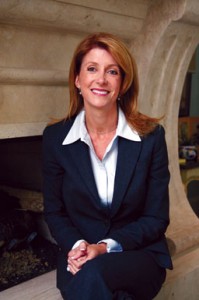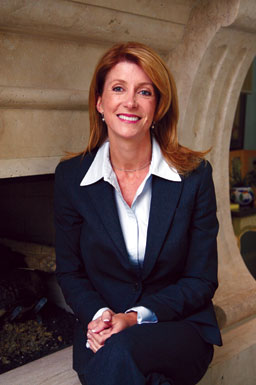By Frances Matteck/nw news editor

Twenty-four years ago, a single mom working two jobs started her college career at Tarrant County Junior College.
She enrolled in the paralegal program because it was something she could fit into her schedule — going to class early in the morning and in the evenings.
At the time, she worked full-time at a pediatrician’s office during the day and waited tables three to four nights a week at her father’s dinner theater.
Today, Wendy Davis is Texas’ newest state senator.
Community college contributed to Davis’ success. Before enrolling at TCC, she didn’t envision college as an option for her.
As a child, she and her three siblings were supported by their single mother. With only a sixth grade education, her mother supported them on an hourly wage working at Braum’s.
“ I don’t think that I would have ever had the courage or the belief that a four-year college was something I could do if I hadn’t had the experience and the courage that I learned at Tarrant County College,” Davis said.
“ I started for that paralegal class, and after I did it for a year, I had gained enough confidence that maybe I was cut out for college and maybe that was something that I could do on a four-year degree plan.”
TCC provided her with a foundation on which to build her scholastic career.
“ One of the very important things it did was it helped me establish a GPA that I was then able to take to TCU and achieve a scholarship from,” Davis said.
With her scholarship, she attended Texas Christian University from 1986 to 1990 and graduated first in her class. She was the first in her family to graduate college.
Her excellence in school and unique background then helped her get into Harvard Law School.
“ They want people with backgrounds like mine,” she said. “They want culturally diverse and economically diverse backgrounds so that people come together and learn as much from each other as they learn from the program itself, from the teachers themselves.”
Davis graduated with honors from Harvard in 1993.
A few years later, she ran for city council and lost. But she was not discouraged and won the following election.
She served on the Fort Worth City Council from 1999 to 2007 as the District 9 representative.
She initially ran for the office because she wasn’t satisfied with what she was doing.
“ When I was in law school, I had volunteered at a legal services center for a couple of years, and it was very meaningful helping people who really, really needed and appreciated that help,” she said. “And I felt like I was making a difference in people’s lives, and the City Council seemed to be a place that would offer me the opportunity to do that again.”
After serving on the City Council for eight and a half years, Davis decided to run for state senate against incumbent Kim Brimer.
Brimer is a veteran politician with two decades of experience under his belt, but Davis thought he was lacking in a few areas.
“ I felt like we had been missing someone who really connected with the constituency, who was really there at the state level representing the people back home,” she said.
Apparently, the people agreed with her.
Davis won the election with 49.9 percent of the vote.
She will stay connected with voters through a strategy she used during her City Council tenure. Davis kept in touch with the constituents in her district by appointing neighborhood leaders who kept her abreast of their concerns. She plans to continue listening by bringing her communication strategies to the state level through a committee of leaders from the areas she represents and town hall meetings.
Her community college roots and understanding of the sometimes difficult financial situations community college students face will continue to help her at this new level in her public servant career.
“ For me, personally of course, having come through the community college system, understanding how valuable it is, I will work very hard to make sure that we fund it well and continue to provide that opportunity to as many families as we can,” she said.
One concern she means to address is the problem students face at the beginning of every semester: how they’re going to pay for books.
“ Particularly at our community college level, I think we need to be thinking creatively about how we can help cover the shortfall in the cost of those textbooks and what families are able to afford,” she said.
For now, as she did 24 years ago, Davis is learning.
“ The Senate operates very uniquely. It will be very different than my previous government experience,” she said. “I’m planning to spend a lot of time listening before I begin talking and, hopefully, will learn enough about it to be effective on some issues that I think are really crucial right now.”


























